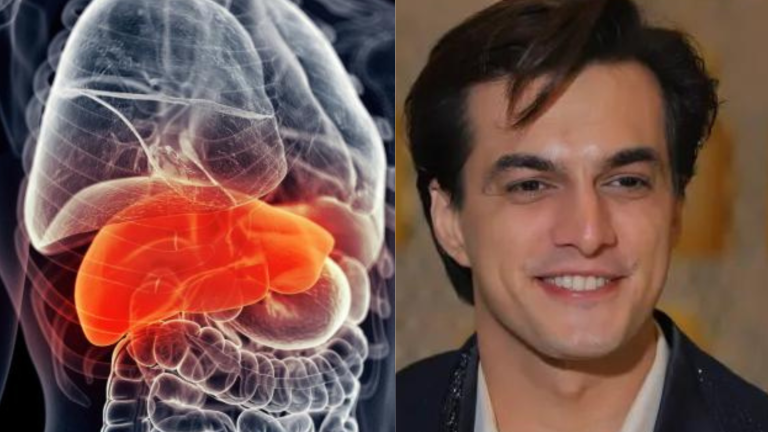TV actor Mohsin Khan, 31, revealed in an interview that he suffered a mild heart attack last year due to fatty liver, continuous work and sleepless nights, bringing attention to a seldom-discussed major heart risk: non-alcoholic fatty liver disease (NAFLD), the incidence of which is rising among young people in India and is caused solely by lifestyle factors such as unhealthy diet, lack of exercise, obesity and lack of sleep.
What are the lifestyle factors that cause NAFLD?
Several lifestyle habits contribute to NAFLD. A diet high in processed foods, sugar and unhealthy fats combined with a sedentary lifestyle leads to weight gain and insulin resistance, both of which are risk factors for fatty liver. “Of these, lack of sleep, which is common in today's fast-paced world, is the most important factor. Chronic sleep deprivation hinders the body's metabolism, leading to increased fat storage and insulin resistance. The body's circadian rhythm, which regulates various processes, is highly dependent on adequate sleep. When this rhythm is disturbed, it can lead to hormonal imbalances, which can aggravate fat storage in the liver. Moreover, lack of sleep is associated with increased appetite and cravings for high-calorie foods, which further contribute to weight gain and fat deposition in the liver,” says Dr Sudeep Khanna, senior gastroenterologist, Indraprastha Apollo Hospitals, Delhi.
Additionally, a 2022 animal study in Japan showed that for every hour of sleep shortened from the recommended 7-8 hours, the risk of fatty deposits in the liver increased by 24% compared to people who got enough sleep.
How does NAFLD affect heart health?
Fat accumulation in the liver is associated with systemic inflammation and insulin resistance, which can impact the cardiovascular system. “The liver and heart are intrinsically connected. Fat buildup in the liver triggers inflammation, thickening the heart's blood vessels and affecting blood flow. People with NAFLD are often at increased risk of atherosclerosis, a condition in which arteries become clogged with plaque and lead to heart attacks. Moreover, a reduced ability of the liver to regulate fats and sugar leads to increased cholesterol and triglyceride levels, putting additional strain on the heart,” says Dr Nishit Chandra, principal director, interventional cardiology, Fortis Escorts Heart Institute, Delhi.
Poor sleep aggravates NAFLD, further increasing your risk of cardiovascular disease. “Research has shown that people with poor sleep patterns are more likely to develop high blood pressure, cardiac arrhythmias, and other heart-related diseases, in part due to metabolic and inflammatory disorders associated with both sleep deprivation and fatty liver disease,” says Dr. Khanna.
What are the diet dos and don'ts?
A diet high in refined sugars, unhealthy fats and processed foods is a major contributor to the development of NAFLD. Avoid sugary drinks, fried foods and snacks high in trans fats. “These foods increase the accumulation of visceral and liver fat, causing or aggravating NAFLD. Instead, eating a diet rich in whole grains, lean proteins, healthy fats like fish and nuts, and plenty of vegetables can help manage and prevent the disease,” says Dr Chandra.
What is the status of NAFLD in India?
About 35 percent of adults have some form of fatty liver disease, putting them at significant risk for heart disease. “All patients who are diagnosed should be screened for cardiac disease and interventions should be undertaken to prevent clinical events,” says Dr. Piyush Ranjan, deputy chief of gastroenterology at Sir Ganga Ram Hospital in New Delhi.

